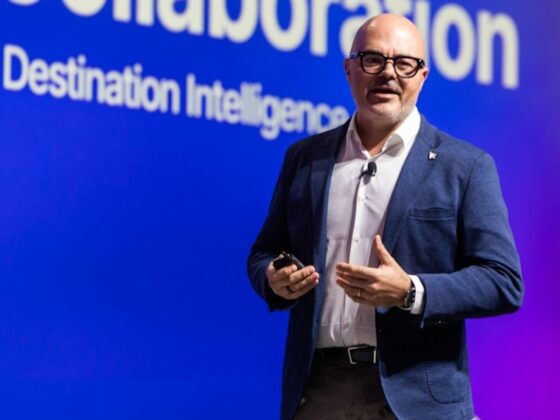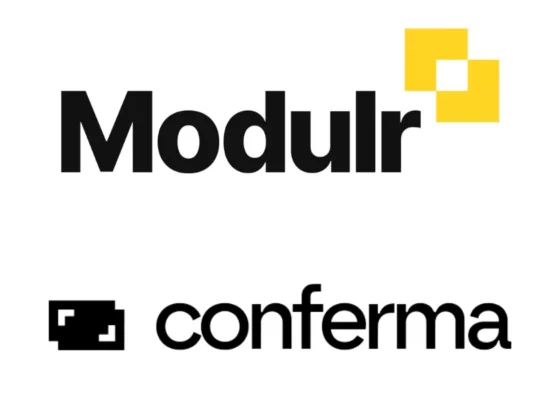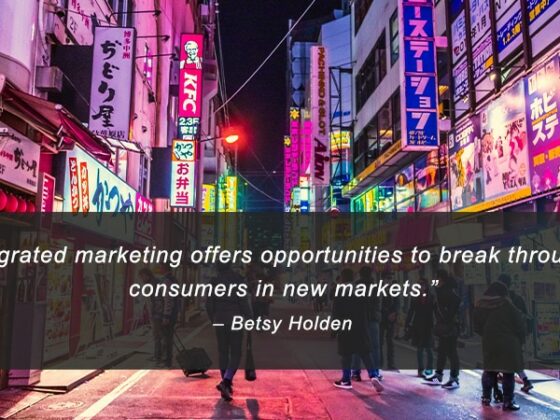
Eight Reasons Why Hotel General Managers hesitate to drive change
1. Reliance on Experience and Traditional Management Approaches
Explanation: Many GMs, especially those with decades of experience, feel confident in their ability to make decisions based on intuition, past experiences, and deep industry knowledge. They’ve seen many trends come and go and might believe that tools such as BI systems are simply the latest trend.
Psychological Aspect: Embracing change often means adjusting our mindset. For seasoned professionals, it can be challenging to re-evaluate long-established habits and decisions. However, it’s important to remember that adopting new technology doesn’t diminish your extensive experience; it enhances it. This realization can be empowering.
Perception: Some may view modern tools as complicated or not needed, and GMs might believe that their hands-on methods work better than using data.
2. Short Tenures at Hotels
Explanation: Many GMs only stay at a particular hotel for 2–4 years before moving to a different property or organization. Implementing change, particularly when it involves overhauling decision-making processes and introducing new tools, takes time. The benefits of such changes may not be seen during their tenure, making GMs less motivated to initiate significant transformation.
Impact: If they don’t expect to be around to see the fruits of long-term investments like data-driven systems, they may focus on short-term goals that are more visible and directly linked to their immediate success.
3. Delegation of Analytical and Strategic Responsibilities
Explanation: Many hotels have dedicated teams for revenue management, finance, marketing, and sales, with department heads handling much of the business analysis and strategic decisions. GMs may feel it is not their responsibility to dive deep into the data themselves.
Dynamic: GMs might prefer to rely on these experts rather than get involved in the detailed analysis, which can eliminate the need to engage personally with new tools or BI systems.
Missed Opportunity: This delegation sometimes leads to a disconnect, where the GM might not fully understand or leverage the insights that data provides. The collaborative decision-making process may also suffer, as data insights and experience don’t always converge.
4. Lack of Pressure from Owners or Stakeholders
Explanation: In many cases, hotel owners may not place sufficient pressure on GMs to adopt new tools or improve processes as long as the business is doing reasonably well. If the hotel is profitable and meeting owner expectations, there is often little incentive to push for innovation or process improvements.
Strategic Consideration: This can create a status quo mentality where GMs feel comfortable maintaining the current way of operating because they’re meeting KPIs and receiving little resistance from above.
Opportunity Cost: However, this creates an environment of complacency. Without external pressure, there’s little motivation to move beyond “ok” performance toward maximizing profitability, guest satisfaction, or operational efficiency.
5. Perception That “The Business is Doing OK”
Explanation: If a hotel performs adequately—occupancy is stable, profitability is strong—there’s often a reluctance to change what’s working. Many GMs view change as unnecessary, fearing that new processes could disrupt operations or introduce unforeseen challenges.
Comfort Zone: There’s a saying: “If it’s not broken, don’t fix it.” This mentality makes GMs prioritize stability over improvement, particularly if they don’t perceive immediate, critical threats.
Risk Aversion: There’s also a sense that adopting new tools could complicate rather than simplify the business, adding additional workload during implementation phases or retraining staff to understand new systems.
6. Change Management is Hard
Explanation: Implementing new tools or systems requires more than a financial investment; it demands time, effort, and a willingness to face resistance from staff and other departments. GMs may see this as a significant distraction from their daily responsibilities.
Workload Perception: Between managing operations, overseeing teams, dealing with guest issues, and ensuring financial performance, GMs often feel they’re already stretched thin. The idea of leading a change initiative may feel overwhelming or too time-consuming.
Resistance to Organizational Change: GMs may face internal pushback from department heads or team members who resist new ways of working, further discouraging them from pursuing changes.
7. Fear of Technology and Skill Gaps
Explanation: For GMs who have spent most of their careers relying on traditional methods, adopting technology can feel intimidating. They might feel uncomfortable with digital tools or analytics and fear they lack the skills to use them effectively.
Barrier: This leads to a fear that adopting new tools would expose knowledge gaps or require a level of tech-savviness they aren’t comfortable with. Training and upskilling become necessary, but they may be reluctant to admit a need for this.
Perception of Irrelevance: Some GMs might think these tools are better suited for younger managers or data experts than for experienced leaders.
8. Lack of Proven ROI on Data Tools
Explanation: Many GMs have seen tech projects fail or heard about BI tools that didn’t pay off, which makes them doubt how well these systems work.
Investment vs. Benefit: If they cannot see immediate, tangible benefits, they might not believe investing in data tools will pay off. Without clear case studies or evidence within their network, the leap of faith into data-driven management may seem too risky.
Conclusion
The reluctance of GMs to embrace change often stems from a combination of psychological, operational, and cultural factors. Experience is a powerful tool, but it can sometimes create blind spots that prevent even competent leaders from realizing their full potential in a rapidly evolving industry. By addressing these challenges—through proper change management strategies, leadership training, and clear communication of the benefits—GMs can be encouraged to adapt and thrive in a data-driven future.
Which of these reasons resonate most with you as a GM? Why do you think change is complex, and how can we bridge the gap between experience and data-driven innovation?
Understanding your perspective can help us tailor solutions that work for you, enhancing your hotel’s short-term and long-term success. With over 30 years of experience in the industry, we have gained a deep understanding of the mindset of hotel general managers. We have developed a system specifically tailored to make the lives of hotel general managers easier.
How Demand Calendar Can Empower Hotel GMs to Make Smarter Decisions
In today’s fast-paced hotel industry, general managers (GMs) face more complexities than ever. Maximizing revenue, streamlining operations, and delivering an excellent guest experience can be challenging. Demand Calendar is here to help. It’s built for GMs and combines easy-to-use technology with practical insights. This way, you can stay on top of your game and outpace the competition.
Here’s how Demand Calendar can address the needs and concerns of hotel GMs:
1. Intuitive and User-Friendly: Minimal Training, Maximum Impact
- Why It Matters: Hotel GMs often have a packed schedule and don’t have time for lengthy training sessions or learning complex software.
- Solution: The Demand Calendar is all about ease of use. Its user-friendly design lets you jump right in with little or no training. This way, you can quickly get the insights you want without wasting time on a learning curve.
- Impact: You’ll spend less time navigating the software and more time focusing on what matters most—driving revenue, enhancing guest experiences, and leading your team.
2. Frictionless Implementation: Minimum Involvement of Hotel Staff
- Why It Matters: Change is hard, and the idea of a disruptive system implementation can be off-putting for any GM, especially when hotel operations are already busy.
- Solution: The Demand Calendar is easy to set up. It integrates smoothly with your current operations, causing little to no disruption. Our team handles the complex parts so your hotel staff can continue performing their daily tasks without worrying about technicalities.
- Impact: You can continue to focus on running the hotel while the system works behind the scenes, providing value from day one.
3. Designed by Hotel Experts: Tailored to GM Needs
- Why It Matters: Many tools in the market are designed by tech companies that may not fully understand the nuances of hotel management. GMs need a tool built for their specific needs and challenges.
- Solution: Demand Calendar is designed by hotel industry experts who understand GMs’ daily challenges. It’s tailored to the unique needs of hospitality operations, ensuring that every feature addresses a specific pain point, from occupancy forecasting to revenue optimization.
- Impact: You’ll have a tool that complements and enhances your operational experience, giving you the insights and support you need to succeed in the modern hotel landscape.
4. Actionable Insights from Multiple Data Sources
- Why It Matters: No matter how much experience you have, manually combining and analyzing data from different sources is time-consuming and nearly impossible to do effectively. When data is siloed, critical insights can be missed.
- Solution: Demand Calendar pulls data from various sources—PMS, RMS, Meetings & Events, Rate Shopping, Benchmarking, and more—into a single platform. It combines these data points to provide actionable insights that are impossible to derive manually, no matter how much industry experience a GM may have. These insights are presented clearly and easily digestibly, empowering you to make informed decisions quickly.
- Impact: By having all your data in one place, you can make smarter, faster decisions that optimize revenue, enhance guest satisfaction, and reduce operational inefficiencies. The system does the heavy lifting, allowing you to focus on strategy rather than data collection.
5. Real-Time Data: Never Miss an Opportunity
- Why It Matters: The hotel industry moves fast, and missing even a single opportunity can impact your bottom line. GMs need access to real-time data to stay ahead of the curve and remain competitive.
- Solution: Demand Calendar provides real-time data that keeps you updated with the latest trends, guest behaviors, and market conditions. You’ll have a constant grip on what’s happening in your hotel, ensuring you can act on opportunities as they arise. This also allows you to forecast more accurately and confidently prepare for future demand.
- Impact: You’ll feel in control, with a clear view of current performance and what’s coming next. This level of insight ensures that you don’t miss revenue-generating opportunities and are always prepared for market shifts.
What’s Stopping You?
Now that you know more about how Demand Calendar can seamlessly integrate into your hotel operations, providing intuitive tools and real-time insights, what’s stopping you from taking control and leveraging the power of data to elevate your hotel’s performance? Whether it’s concerns about implementation, training, or something else, we’re here to help you navigate any potential challenges.






